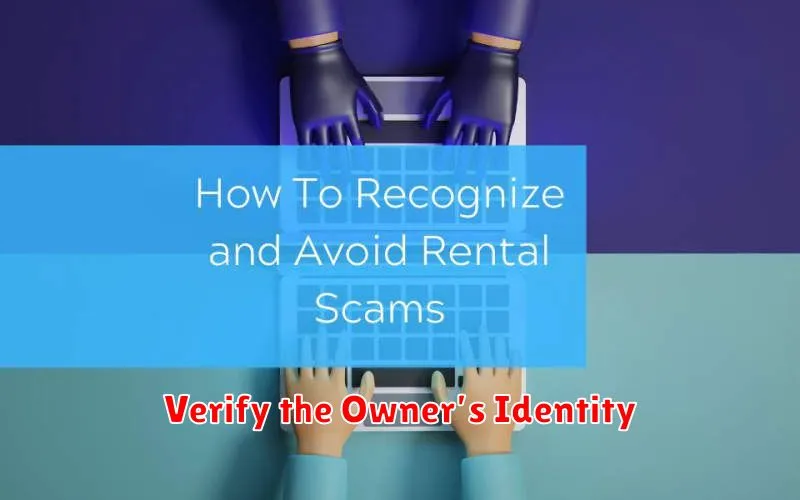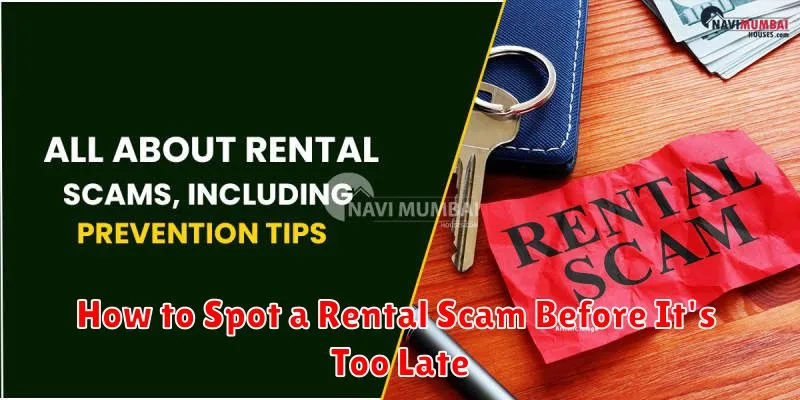Searching for the perfect rental property can be an exciting yet challenging process. Unfortunately, amidst the genuine listings, rental scams lurk, waiting to prey on unsuspecting individuals. Falling victim to a rental scam can lead to significant financial loss, emotional distress, and the frustration of a delayed housing search. This article provides essential information on how to spot a rental scam before it’s too late, empowering you to navigate the rental market with confidence and security. Learn to recognize the red flags, ask the right questions, and protect yourself from fraudulent activities, ensuring a smooth and successful transition into your new home.
From fake listings with unbelievably low prices to requests for upfront payments before viewing a property, rental scams come in various forms. Understanding the common tactics employed by scammers is crucial for protecting your finances and personal information. This comprehensive guide outlines the key indicators of a rental scam, empowering you to identify fraudulent activities and make informed decisions. By learning how to verify listings, conduct thorough research, and ask pertinent questions, you can avoid becoming a victim and secure a legitimate rental property with peace of mind. We will explore the various types of rental scams, provide practical tips for avoiding scams, and offer guidance on what to do if you encounter a suspected fraudulent listing.
Common Signs of Rental Scams
Below-market rent: If the rent seems too good to be true, it probably is. Scammers often lure victims with incredibly low prices to attract numerous inquiries quickly.
Request for upfront payment before viewing: A legitimate landlord will typically not request a security deposit or first month’s rent before you’ve viewed the property in person. Be wary of any requests for money before a showing.
High-pressure tactics: Scammers often create a sense of urgency, pressuring you to act quickly before someone else “snaps up” the deal. This pressure tactic is designed to prevent you from doing thorough research and due diligence.
Poor grammar and communication: Rental listings filled with typos, grammatical errors, or inconsistent information can be a red flag. Professional landlords typically take care to present their properties accurately and clearly.
Requests for wire transfers or unusual payment methods: Be cautious of requests to wire money, use prepaid debit cards, or other unconventional payment methods. These are often favored by scammers because they are difficult to trace.
Never Send Money Before Viewing
This is the most important rule in avoiding rental scams. A legitimate landlord will always want you to see the property before you commit. They understand the importance of a tenant feeling comfortable in their future home.
Requests for money upfront, particularly before a viewing, are a major red flag. Common scams include requests for deposits, application fees, or even the first month’s rent before you’ve even stepped foot inside the property.
Scammers often prey on urgency, claiming high demand or limited-time offers to pressure potential renters into sending money quickly. Resist this pressure. If a landlord is unwilling to show you the property first, it’s almost certainly a scam.
Verify the Owner’s Identity

A crucial step in avoiding rental scams is verifying the owner’s identity. Confirm their ownership of the property through public records. This can often be done online through your local county assessor’s office or property appraiser’s website.
If the supposed owner claims to be out of town or otherwise unavailable for an in-person meeting, proceed with extreme caution. This is a common tactic used by scammers. Request a video call to verify their identity and ask questions about the property.
Be wary if they are hesitant to provide information or if their story seems inconsistent. Trust your instincts. If something feels off, it’s best to walk away.
Use Reputable Listing Platforms
A key strategy for avoiding rental scams is to stick with well-known and established listing platforms. These sites often have built-in security measures and screening processes that help protect both landlords and tenants.
Research different platforms and compare their features, fees, and user reviews. Look for platforms that offer verified listings, secure payment methods, and clear terms of service.
Be wary of listings found on less established websites or social media platforms. These can be hotbeds for fraudulent activity. If a deal seems too good to be true, it probably is. Exercise extreme caution when dealing with individual listings outside of reputable platforms.
Prioritize platforms that offer communication tools within their system. This helps maintain a record of your interactions and adds another layer of security, deterring scammers who prefer operating outside of traceable channels.
Trust Your Instincts

Perhaps the most important tool in your arsenal against rental scams is your own intuition. If something feels off, it probably is. Don’t dismiss that nagging feeling in your gut. It’s often your subconscious picking up on subtle red flags that your conscious mind might overlook.
Ask yourself these questions: Does the deal seem too good to be true? Is the landlord overly eager or pushy? Are they avoiding answering your questions directly? Are they pressuring you to make a decision quickly? If the answer to any of these is yes, proceed with extreme caution.
It’s better to miss out on a legitimate rental than to fall victim to a scam. Trust your instincts and walk away if anything seems suspicious. Remember, you are in control of this process. Don’t let anyone pressure you into making a decision you’re not comfortable with.

